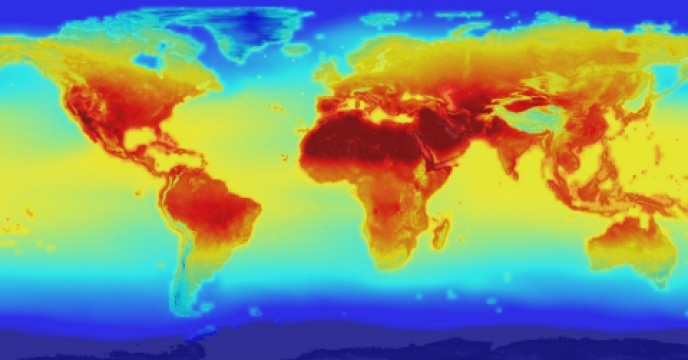“To know Creation is to know the Creator.” –St. Columban
For more than 30 years, Columban missionaries have been at the forefront of protecting the environment from destructive practices and addressing the urgency of climate change. Our mission experience of living with the natural world and with communities that have been marginalized and exploited impels us to seek ways to restore right relationships with all of Creation.
We advocate for bold action to address Climate Change.
In particular, human-induced climate change is the most serious and pressing ecological challenge facing the world today. The reality of climate change compels us to both personal and structural changes.
Climate change, largely driven by our reliance on fossil fuels, has led to extreme weather events, rising sea levels, severe droughts, a loss of biodiversity, food insecurity, and higher rates of migration which affect the poor and vulnerable in nations across the world.
Columban Missionaries around the globe stand in solidarity with communities impacted by climate change. In Burma and Peru, missionaries watch as glaciers, a main water and irrigation source, continue to disappear. In the Philippines and Fiji, extreme weather events and rising sea levels threaten coastal communities where agriculture and fishing are a main source of economic stability. Severe droughts cause food and water shortages in Pakistan and the U.S.
We advocate for sustainable development and agricultural systems.
Across the world, in countries that are rich in oil, gas and minerals, extractive industries have inflicted lasting damage to poor and indigenous communities and to Creation. Based on their experience in communities negatively affected by mining and other extractive projects, Columbans challenge this model of development based on the intensive exploitation of natural resources.
Large-scale agribusiness has also been detrimental to the land and people. Genetically Modified Organisms (GMOs) threaten the integrity of creation and the life God made good, and they have extremely damaging effects on the livelihoods of small-scale farmers and economies throughout the world.
We advocate for the right to water.
According to the Catholic Church, the right to water, as all human rights, finds its basis in human dignity and not in any kind of assessment that considers water merely as an economic good. Water, the basis for all human life, is a sacred source of life we must protect. Without adequate access to clean water, the health, nutrition, and sanitation of poor communities, and especially women and children, suffer. Without water, life is threatened.
Environmental Justice Resources:
The God of creation is calling each of us to reconnect with the natural world and reexamine how our lifestyles impact its wellbeing. The Columban Creation Covenant is a guide to help you do just that. By filling out the Columban Creation Covenant, you are making a commitment to the natural world. "How will I reconnect with God's creation?"
This examination will help you identify how the extraction of the raw materials needed to manufacture your purchases impacted workers, nearby communities, and the earth. It will help you imagine new ways to purchase responsibly.
Las cosas que compramos pasan por un largo proceso antes de llegar a nosotros. Este proceso comienza con la extracción de la materia prima y luego avanza por los niveles de producción, distribución, consumo y, finalmente, desecho. El proceso se conoce como una “cadena de producción.”

NASA global data set combines historical measurements with data from climate simulations using the best available computer models to provide forecasts of how global temperature (shown here) and precipitation might change up to 2100 under different greenhouse gas emissions scenarios. Credits: NASA
Human induced climate change is the most serious and pressing ecological challenge facing the world today with far reaching impacts on both the human and natural world. Climate change raises serious moral and ethical concerns about the distribution and use of our planet’s finite resources and the destruction of biodiversity and the web of life.
The Amazon, integral to the fabric of all life throughout the globe is often referred to as, "the lungs of the planet" (LS #38). What happens when the lungs are choked and life ceases? Pope Francis warns in Laudato Si' against the loss of biodiversity and connectedness with God's creatures as is experienced in the Amazon and other biomes around the world.
A Synod of Bishops for the Pan-Amazon region is scheduled to meet in Rome in October 2019 with the theme, 'The Amazon: New paths for the Church and for integral ecology'. Why?
Copyright © 2024 Columban Center for Advocacy and Outreach, Washington, D.C.